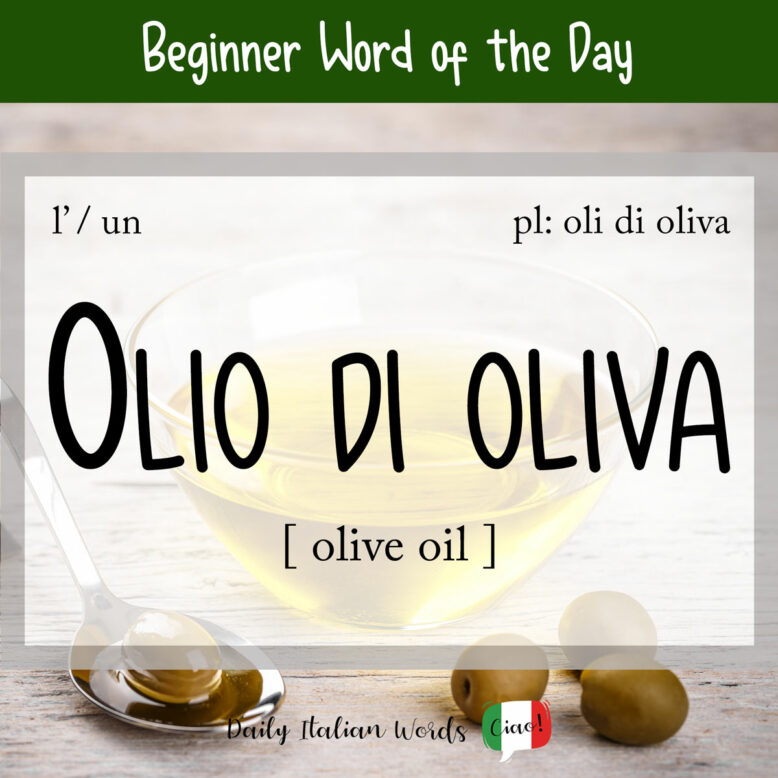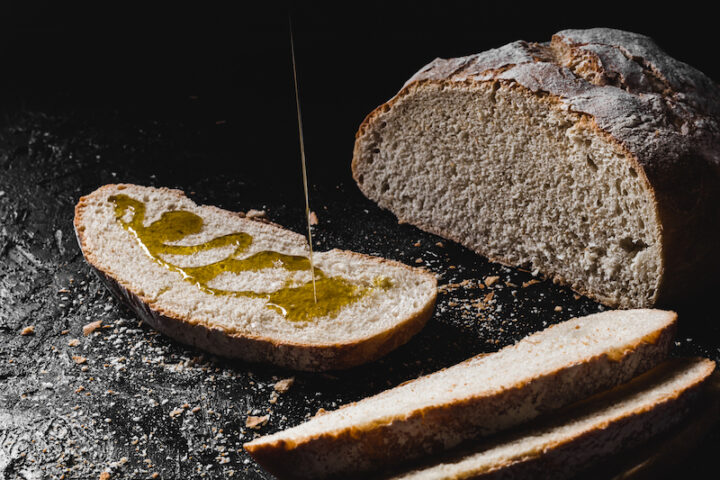Olio di oliva – or olive oil in English – is technically three words, but they appear together so often that we figured you’d let us off the hook, just this once! 😉
Olio is a masculine noun. To create the plural form, just get rid of the ending -o and you have oli, and consequentially, oli di oliva.
Learn with our video

Olio is the word for oil, di is a preposition meaning of, and oliva is, you guessed it, olive. Because di appears before a word beginning with a vowel, it is also possible to abbreviate the preposition to d + apostrophe and say olio d’oliva.
Because olio di oliva is the most popular kind of oil in Italy, it is often shortened to simply olio and Italian people will still know exactly what kind of oil you are referring to.
Mi piace aggiungere un po’ di olio piccante sulla pizza!
I like adding a bit of spicy olive oil to my pizza!

Olio di oliva has long been a primary ingredient in Italian and Mediterranean cuisine. It can be used:
- to season dishes and appetisers (condire piatti e antipasti)
- as a dressing for salads (come condimento per l’insalata)
- for cooking (per cucinare)
- for dipping bread (pane e olio)
Besides cooking, it has historically been used for various purposes including medicines, religious rituals, soap-making, massage oil, fuel for oil lamps (as well as early Olympic torches) and even skin care!
Extra virgin olive oil (olio extra vergine di oliva) is the highest grade of virgin oil derived by cold mechanical extraction without use of solvents or refining methods. Containing no more than 0.8% free acidity, it is judged to have a superior taste to virgin olive oil (olio vergine di oliva) which has no more than 2% acidity. The flavour of the oil may vary according to the region in which it was produced and the type of olive.

If you’re interested in finding out about the process involved in producing olive oil while learning some Italian along the way, we highly suggest checking out the video below. Although the presenter’s Italian is very clear, you might find it helpful to turn on the automatically generated Italian subtitles.
This article is also available in video format on our YouTube channel. The audio version can be found on Podbean, Google Podcast, Apple Podcast and Spotify.
Heather Broster is a graduate with honours in linguistics from the University of Western Ontario. She is an aspiring polyglot, proficient in English and Italian, as well as Japanese, Welsh, and French to varying degrees of fluency. Originally from Toronto, Heather has resided in various countries, notably Italy for a period of six years. Her primary focus lies in the fields of language acquisition, education, and bilingual instruction.


